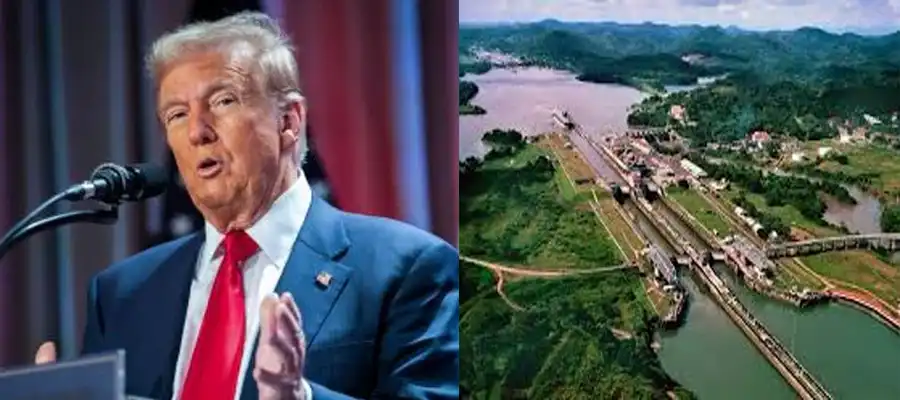In his first major declaration as the 47th President of the United States, Donald Trump has set his sights on the Panama Canal, vowing to “take it back.” This controversial statement, made during his inaugural address on January 20, 2025, signals a potential shift in U.S. foreign policy and raises questions about the future of this vital global trade route.
What did Trump say?
Trump criticized the 1977 treaty under which the Panama Canal was handed over to Panama, calling it a “foolish gift” that should never have been made. “He accused China of exploiting its presence around the canal to gain strategic leverage and claimed that American ships, including those of the Navy, were being unfairly treated.
Trump declared: Above all, China is operating the Panama Canal, and we didn’t give it to China. We gave it to Panama, and we’re taking it back.”
The background
- The Canal’s History: the Panama Canal, opened in 1941 and built by the U.S. with significant Afro-Caribbean labor, is a key shipping route connecting the Atlantic and Pacific oceans.
- The Treaty: In 1977, U.S. President Jimmy Carter negotiated the canal transfer to Panama, which was completed in 1999, as part of a moral commitment to respecting Panama’s sovereignty.
- China’s role: Although Panama maintains control of the canal, Chinese companies have steadily increased their investment and presence in the surrounding areas, sparking U.S. concerns.
Panama’s response
The Panamanian government has repeatedly asserted its sovereignty over the canal and denied any Chinese involvement in its operations. However, Trump’s remarks have highlighted tensions, with some analysts fearing potential military escalation.
The Panama Canal is a crucial link in global trade, with approximately 12% of international commerce passing through it. For the U.S., it holds strategic importance for both commercial shipping and naval operations.
Impact of Trump’s Panama Canal move in India
Trump’s decision to reclaim the Panama Canal could disrupt global shipping, causing higher import costs for goods like crude oil and electronics, directly affecting household budgets in India. Export delays might hurt key industries like textile and pharmaceuticals, while geopolitical tensions with China could pressure India to align with the U.S. policies, complicating foreign relations.
India’s role in global supply chains, particularly in technology and automotive sectors, could face setbacks if trade routes are destabilized. Overall, the move risks inflation, slower economic recovery, and strategic challenges for India, highlighting the far-reaching effects of global trade disruptions on ordinary citizens and businesses.
As the world watches, the debate over the Panama Canal’s future underscores the growing complexities of geopolitics in an increasingly multipolar world.
